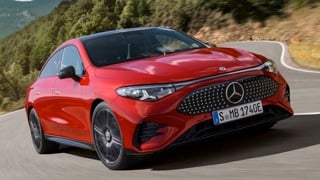For the past few years manufacturers have been making various noises about reducing their exposure to the short-term rental market.
This sector of fleet is high volume but high cost, with large discounts and rapid turnover of vehicles.
The used car pricing guides scrutinise such activity, downgrading their predictions when they believe the quantities of cars off-loaded in this way get too high.
However, few of these manufacturer promises are kept.
A poor sales quarter usually results in a flood of vehicles heading back to rental to absorb the ever-constant roll of vehicles from global production plants.
Vauxhall is looking to buck this trend.
Last year it reduced its annual sales to rental by 6,000 cars; this year it plans to cut another percentage point from its UK market share, a drop from 12% to 11%, by taking out a further 20,000 rental units.
Such promises have been made before: why should this time be any different?
“We have planned for this reduction in sales – that’s why we’ve got confidence in this strategy,” says Vauxhall fleet director James Taylor. “There will be no pressure to go back into it.”
The backing of Vauxhall’s Detroit-based General Motors parent also helps.
The company’s brief dip into Chapter 11 bankruptcy in 2009 has helped to focus the boardroom on making profit.
“The object of the exercise is to make money. We have a different direction from the top of the organisation and it is on board with this strategy,” Taylor says.
He adds: “We can remove volume without impacting on production because we are introducing new models in new segments that will fill the capacity in our plants.”
Residual values are likely to see a £400 uplift on average for seven to eight-month-old cars.
Some models will be in four-figures, such as the Insignia, where supply is being particularly constrained – volumes will fall by 60% to 70%.
“Those improvements will flow through to our three-year values,” says Taylor.
“It’s not overnight, but we expect, say, £200 for a £1,000 increase on a short-cycle residual.”
The strategy will also enable Vauxhall’s used car retail operation Network Q to buy back a greater proportion of rental cars. The target is 70%, which gives Vauxhall more control over how these cars return to market.
Although Vauxhall is prepared to take the full 20,000-unit hit, it anticipates some of the pain will be relieved by incremental sales. Ampera should add 2,500 this year, while the new Tech Line trim on Astra and Insignia is expected to add another 1,000 each.

















Login to comment
Comments
No comments have been made yet.